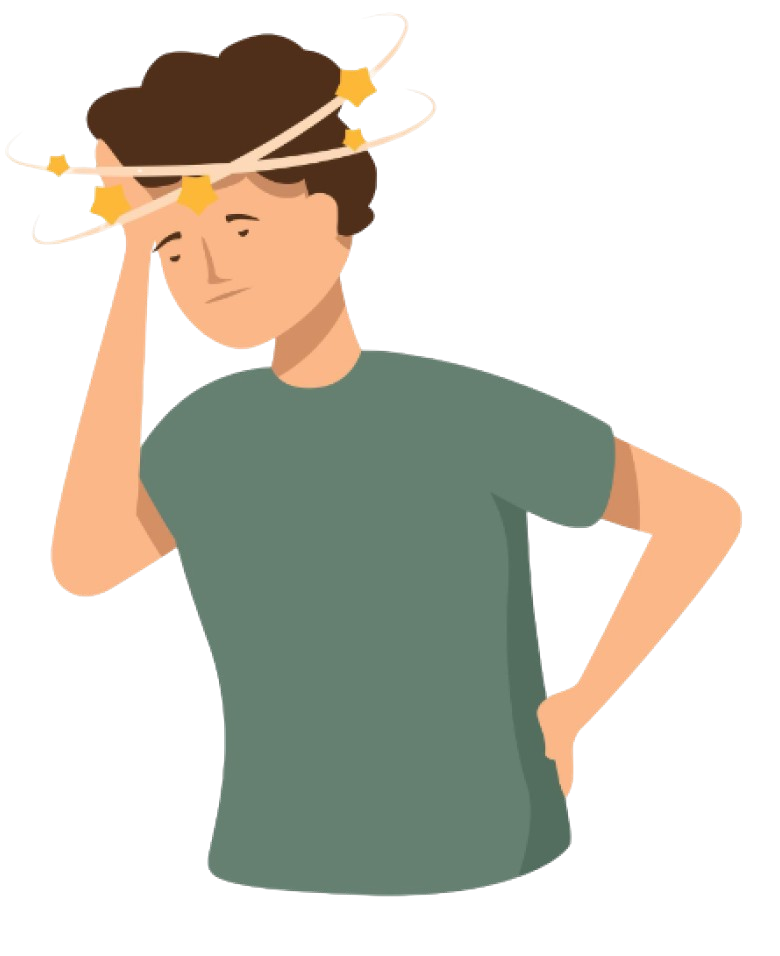Symptoms

Symptoms Of Bipolar Disorder
Bipolar disorder manifests in a variety of symptoms that can differ widely between individuals. The primary symptoms are categorized into three types:
- manic episodes
- hypomanic episodes
- depressive episodes.
Each type presents unique challenges and requires specific approaches for management.
Manic Episodes
Common symptoms of a manic episode include:
Euphoria or Irritability
Increased Activity Levels
Rapid Thought Processes
Reduced Need for Sleep
Impulsive Behavior
Grandiosity
Poor Judgment
Manic episodes can have serious consequences, including financial difficulties, legal issues, and strained relationships. In severe cases, hospitalization may be necessary to prevent harm.
Hypomanic Episodes
Symptoms of hypomanic episodes typically include:
Elevated Mood
Increased Productivity
Increased Sociability
Reduced Sleep
Mild Impulsivity
Although hypomania is less disruptive than mania, it can still lead to complications, especially if followed by a depressive episode.
Depressive Episodes
Symptoms of depressive episodes include:
Persistent Sadness
Loss of Interest
Fatigue
Feelings of Worthlessness
Concentration Difficulties
Sleep Disturbances
Changes in Appetite
Suicidal Thoughts
Depressive episodes are often the most challenging aspect of bipolar disorder and can lead to severe consequences if not properly managed, including the risk of suicide.
Treatment Options
Stress Management
Learn effective methods for managing stress and reducing its impact on your life. Our strategies are designed to help you stay calm and focused.
Family Support
We provide resources and guidance for family members to better understand and support you. Strengthen family bonds and improve communication.
1 On 1 Counseling
Engage in personalized sessions with our skilled counselors. These individual meetings offer focused support and tailored advice.
Wellness Assessments
Receive comprehensive assessments to evaluate your current mental health status. Our evaluations guide the development of your personalized care plan.
Peer Mentoring
Connect with individuals who have successfully managed their bipolar disorder. Our mentoring program offers practical advice and inspiration.
Educational Resources
Access a wide range of materials to enhance your understanding of bipolar disorder. Our resources provide valuable information and practical tips for managing your condition.
Helping Over 100 Patients (And Counting!)
Imran is such a great yoga trainer! I had the opportunity to have some 1:1 sessions with him. He crafted a yoga routine that acommodated my knee pain as well as my beginner level experience with yoga.
H.KImran is a gentle soul with a purposeful vision of making a difference in the mental health space. I find his content insightful, engaging and most importantly authentic. Thank you, for your tenacity and for doing the much needed work in this space!
ANDREA MAUImran is an exceptionally talented individual. He was able to turn his life around from bipolar disorder. I witnessed his transformation. Based on his results I have also contracted him as my Yoga instructor. He is genuine, sincere, and has a true heart to serve others.
ALI PERVEZImran Ghani's book skillfully combines his Five Pillars—sleep, nutrition, movement, mindfulness, and community—to support recovery for those with bipolar disorder, anxiety, insomnia, and other modern challenges. A great resource for well-being.
KEITH KACHTIK
I recently had the chance to join imran in a few online and in-person training sessions and it was really helpful for me. Imran is knowledgeable, caring and has the unique ability to show the learner how to improve their practice.
PAPA DIALLO